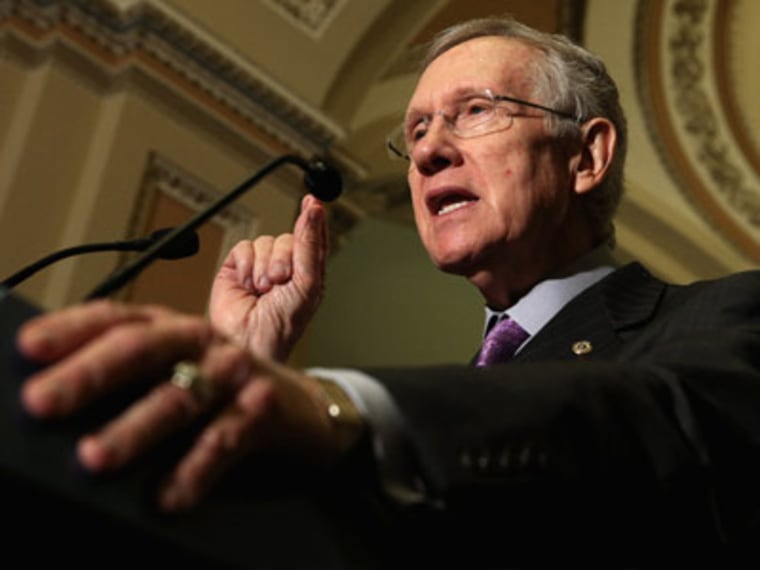Two familiar words reared their ugly heads lately in ongoing fiscal cliff negotiations: debt ceiling.
President Obama reportedly wants the debt ceiling raised by the end of the year as part of the deal to avert going over the fiscal cliff. According to Politico, Speaker John Boehner responded: “There is a price for everything.”
Senate Majority Leader Harry Reid underlined the importance of the debt ceiling on Tuesday. “We would be somewhat foolish to work out something on stopping us from going over the cliff and a month or six weeks later, Republicans pull the same thing they did before and say, ‘We’re not going to do anything on this, this happens, or we’re not going to agree to increase the debt ceiling,’” said Reid at a press conference.
In an op-ed published last week, Boehner demanded Obama’s signature health care law also be “on the table” in the high-stakes budget negotiations.
Both parties, while initially optimistic in tone, stepped up their rhetoric in ways reminiscent of the bitter 2011 showdown over raising the nation’s borrowing limit.
We can run, hide, block it out, but the problem never really went away. The current fiscal cliff is the result of Washington lawmakers collectively making the choice to deal with problems later. Like the that mountain of laundry that you put off, tackling those dishes piling up in the sink or fixing that leaky roof, the current fight is that one giant post-it note staring you in the face, taunting you to get things done.
For lawmakers, that mountain of laundry is the mountain of debt. In the debt ceiling debacle last summer, House Republicans demanded a dollar-for-a-dollar spending cuts in exchange for passing a bill to prevent the United States from unprecedented default on its debt. But the standoff went to the wire and Congress couldn’t agree on the specifics in time, so it kicked the can to a bipartisan super-committee of lawmakers that failed to reach an agreement on deficit reduction. Remember them? The failure of the super-committee tripped the fiscal fail-safe written into the law—$1.2 trillion in crude spending cuts that would go into effect on January 1, 2013.
Coincidentally, this is also the same day that the two-year extension of the Bush-era tax rates, which President Obama signed in 2010, are scheduled to expire.
Fast-forward to the present. If Congress remains unable to negotiate a deficit-reduction package, anti-tax lobbyist Grover Norquist’s worst nightmare comes true on New Year’s Day. That’s when the Bush-era tax cuts will expire, which would raise $4 trillion in new revenue, and the aforementioned $1.2 trillion in cuts will take effect. The impact would not be immediate, but economists agree the combination of spending cuts and tax hikes could thrust the economy right back into another recession within months.
President Obama has repeatedly said that he will veto any bill that extends the Bush-era tax rates for the top 2%.
The White House announced this morning that Obama will be taking his tax policies to the American people in an aggressive public outreach campaign, arguing for a “balanced” deficit reduction plan.
